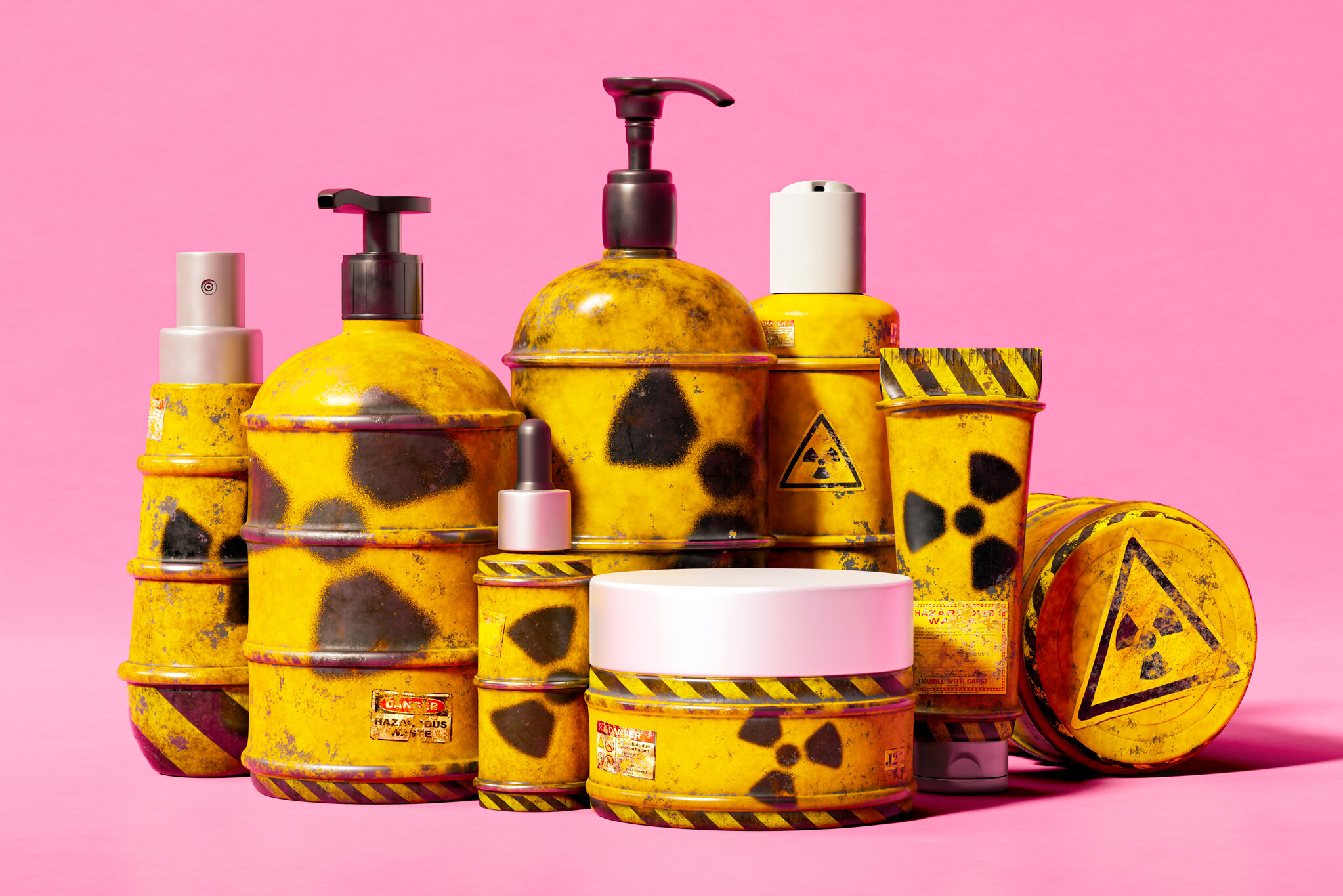Skin Care Dictionary: These Ingredients Shouldn’t Be in Your Cosmetics
This article will help you learn how to identify the most common harmful ingredients found in the cosmetics industry, and why we should avoid these ingredients if we want to have healthy, glowing skin!

Summary:
‘Sulfate Warrior’ – Skin-Irritating Surfactants The notorious synthetic surfactants are primarily found in everyday care products, such as shampoos or shower gels, due to their cleansing properties. They help dissolve dirt and natural oils. However, sulfates also strip away the protective barrier of our skin against external factors. For those unaware, the high concentration of sulfates in daily use products can lead to irritation and dryness or even hair loss.
‘Offender’ in Hair Products: Silicon Once praised worldwide in cosmetics, Silicon has been heavily criticized since the publication of two books, “Curly Girl the handbook” by Lorraine Massey and “La Vérité sur les cosmetiques” by Rita Stiens.
They act as moisturizers, softeners, and skin barrier enhancers. Silicon is commonly used in both shampoos and body washes, primarily to create a layer on hair or skin, preventing them from external exposure. The issue with silicon is that most of them are water-insoluble, leading to accumulation, which suffocates our skin and hair, hindering their normal functions. Over time, this makes the hair dirtier and dependent on shampooing, thereby worsening scalp and hair health.
Fragrance – the Scent Factor in Cosmetics For some products, synthetic fragrances are easily found in facial creams, hair care products, and even deodorants. When it comes to conventional synthetic perfumes, they are like Pandora’s box, containing numerous harmful compounds as well as various animal-derived ingredients, such as musk or castoreum. Those opting for fragrance-free products replace them with natural perfumes combining citrus fruits with essential oils to provide the skin with a refreshing and natural scent.
Phthalates and Toluene – the Toxic Duo in Nail Polish They can be found in regular nail polish or perfumes and act as fixatives, solvents, and softeners. These substances come into contact with the skin through inhalation, enter the bloodstream, and disrupt hormones. Toluene, a clear solvent, irritates the eyes and can cause fatigue and headaches.
Deodorant Agent: Aluminum Salts Aluminum is the main toxic substance found in deodorants. It is an artificial antiperspirant that blocks sweat glands and reduces sweating. Did you know that our armpits secrete a lot of protein and lipid, which attract bacteria and use them as food? And it is the waste products of bacteria that are the ‘culprits’ behind the unpleasant smell. Aluminum salts can penetrate our skin, creating conditions for the development of diseases. One of them is breast cancer, which is also caused by the toxicity of aluminum.
Paraffin – the Creator of a ‘Fake Nutrient Layer’ Commonly used in body creams, they are supposed to provide visibly hydrated skin due to their cream-like texture, but in reality, they do not. They are often used to replace vegetable oils and absorb moisture from the skin, clogging pores and preventing the skin from breathing naturally. Over time, paraffin will dry out the skin, leading to acne and irritation. In lip products, we may accidentally ingest them, and toxins will accumulate in the kidneys and liver. Because they absorb quickly and have low raw material costs, they are commonly used in beauty products.
“In cosmetics, preservatives are often used to prevent product spoilage, extend shelf life, and protect them from external pollutants. Many of them are toxic to the immune system and cause a large number of reactions such as allergies, irritation, and loss of skin pigmentation.”
Avoid getting acquainted with products containing chlorine, bromine, or iodine We advise you to avoid ingredients containing “chloro,” “bromine,” “iodo,” and substances such as BHA or boric acid, which are well-known preservatives. However, there are still natural or synthetic preservatives such as sodium levulinate, sodium anisate, benzyl alcohol, sodium benzoate, and potassium sorbate accepted by natural cosmetics certification organizations.

